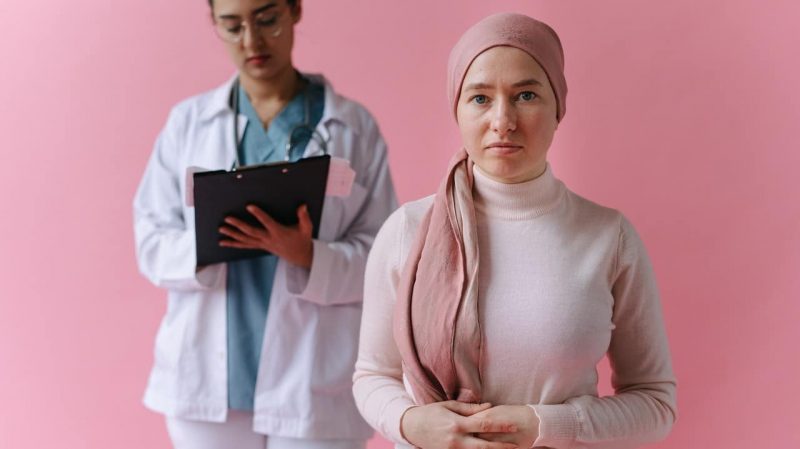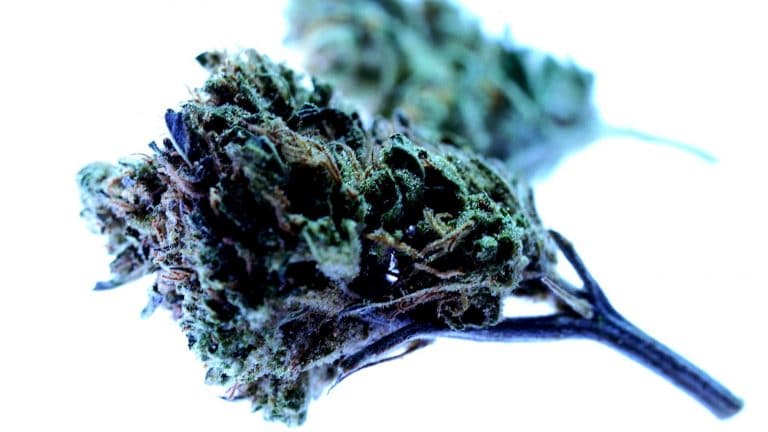Does CBD Oil for Cancer Really Help: Research & Testimonials

CBD oil for cancer is part of one of the new and innovative treatment methods. Although its potential benefits are still in the research phase, the public has become aware of CBD’s beneficial properties.
This article will explain what CBD oil is and how it can assist cancer patients in their battle and even act as prevention. We will also provide some insight into which cannabis oil products should be used for particular types of cancer.
What Is Cancer and What Causes It?
By the National Cancer Institute’s definition, cancer is a whole group of various diseases involving abnormal cell growth that can invade or spread to other parts of our body.
Our body has trillions of cells reproducing constantly as a part of its normal functioning. As a matter of fact, it’s happening while you are reading this. Cancer cells, however, are a mistake in the process. For some reason, an old cell does not die, or a new abnormal cell appears, leading to a benign or malignant tumor.
Though we are not 100% sure what triggers such behavior, CBD oil cancer treatments could be used as a deterrent.
While most cancers, i.e., 90–95% of cases, result from genetic mutations, 5–10% are a result of inherited genetics.
Moreover, tobacco use causes about 22% of cancer deaths, whereas 10% of deaths are linked to obesity, lack of physical activity, and excessive alcohol drinking.
CBD Oil Benefits for Cancer
Cannabis sativa and its derivative CBD has shown the following anti-cancer effects:
- Antiproliferative – it stops cancer cells from reproducing.
- Antiangiogenic – CBD prevents the formation of new blood vessels which “feed” the tumor and enable its growth.
- Antimetastatic – CBD prevents cancer cells from spreading throughout the organism, i.e., it prevents metastases.
- Apoptotic – CBD causes cancer cells to self-destroy.
In addition to that, you can use CBD oil for cancer to avoid the adverse side effects of prescribed anti-cancer medications and chemotherapy.
We would also like to add that CBD qualities, such as its anti-inflammatory and anti-bacterial impact, probably add to enhancing the immune system and may act as prevention.
The CBD origin may or may not matter – whether it’s from hemp, cannabis, synthetically produced, isolated, or combined with THC.
It should also be noted that each body is unique. Therefore, if you want to know what’s the correct dosage and what’s the best CBD oil for cancer, the answer will depend on the person’s overall health and the type of tumor.
Remember, you must not take advertisements for CBD for granted. The oil that is specifically and exclusively produced for fighting cancer does not exist! That is simply cheap advertising, and such manufacturers are entitled to get a warning note from the FDA.
How to Use CBD Oil for Cancer
Before we move on to more precise descriptions of particular types of cancer and how they can be treated with the oil, here are some general pieces of advice:
- If you are diagnosed with cancer, you must consult with your physician. There are no two identical cases of the disease, and what has worked for your friend’s friend may not necessarily work for you.
Also, you have to have a recommendation from your doctor if you wish to purchase medical marijuana products.
- Depending on the type of cancer, different dosages and products are used. Besides using CBD oil for cancer treatment, you can also use capsules, topicals, edibles, patches, tinctures, or vaporizers. All products have different advantages.
Generally, it is advisable to use it in the form which allows for precise measurement. By the way, you can also find free medical cannabis.
- Research shows that depending on what kind of CBD product a patient is taking (natural or synthetic, with or without THC), they may experience some side effects, such as dry mouth, drowsiness, memory loss, impaired concentration, tiredness, and psychoactive effects.
- CBD oil benefits for cancer are recognized in handling chemotherapy side effects such as nausea and vomiting, loss of appetite, and (chronic) pain.
Studies were conducted by separate institutions, and they all give scientific evidence that adverse effects of chemotherapy are inhibited by CBD. What’s more, Dronabinol (Marinol) and Nabilone (Cesamet) are two FDA-approved drugs based on marijuana compounds.
As for the more hands-on use, we will show some examples of different cancer types and how the oil helped patients fight for their lives.
CBD Oil for Skin Cancer
Skin cancer is the most common type of cancer. It accounts for at least 40% of cancer cases globally. Exposure to the sun’s ultraviolet radiation causes more than 90% of skin cancer cases. The main types of skin cancers are basal-cell skin cancer (BCC), squamous-cell skin cancer (SCC), and melanoma.
Fortunately, the chances of survival are high if the cancer is discovered on time, and cannabis or hemp-derived CBD is an amazing asset.
The European Journal of Pharmacology published a study in 2013 which discovered that CBD excels at restricting the growth of melanoma cells. CBD oil basically acts just like AEA, a cannabinoid in our body responsible for limiting melanoma.
How to make CBD oil for cancer? Ask Rick Simpson, an ex skin cancer patient who had been diagnosed with basal cell carcinoma. Simpson created his own form of cannabis concentrate known as RSO (Rick Simpson Oil). Simpson used to put the oil on bandages and cover the cancer spots for 4 days, after which the spots “magically” disappeared.
The results of another research conducted on mice exhibited a 90% decrease (!) in skin cancerous cells by using synthetic CBD.
How to use CBD oil for skin cancer? It is advisable to use it in the form of CBD patches or topical creams because they can directly be applied to the affected spot. However, ingestible forms are recommended as well.
What about the dosage? The correct dosage will depend on your tolerance to CBD and your condition. It’s best to start low. You can always increase the dosage if necessary.
CBD and Breast Cancer
Breast cancer develops from breast tissue. The signs of breast cancer include a change in breast shape, a lump in the breast, dimpling of the skin, a red or scaly patch of skin, etc.
What are the risk factors for developing breast cancer? Obesity, alcoholism, a lack of physical exercise, hormone replacement therapy during menopause, being female, and having a family history of breast cancer. In fact, 5–10% of cancer breast cases are the result of a genetic predisposition inherited from a parent.
There is a chance CBD oil for cancer could help treat all three subtypes of breast cancer, the highlight being the treatment of HER2-positive and triple-negative breast cancers. Since there is no regular therapy for patients dealing with triple-negative breast cancer nor promising prognoses, this ray of hope is very much welcoming.
In addition, the combination of conventional treatments and CBD has given promising results – they are better than in the cases when only conventional methods are used.
One encouraging example of how to use CBD oil for breast cancer is the case of Dee Mani, who was diagnosed with triple-negative breast cancer. Knowing that her own sister had passed away while undergoing chemotherapy, Dee decided to take cannabis oil and change her lifestyle.
She was regularly taking the oil for five months, and after that, doctors declared she was in good health.
It should also be noted that Dee’s CBD oil for breast cancer was, in fact, marijuana oil, which included both CBD and THC.
Another example involves the singer and actress, Dame Olivia Newton-John, who started using medicinal cannabis after being diagnosed with stage four breast cancer. Her oil contained up to 47% THC, 26% CBD, and other cannabinoids (CBG, CBC, and CBN). She also launched a foundation to fund cancer treatments that include medicinal cannabis.
So, does CBD help treat breast cancer? While research shows the combination of THC and CBD is beneficial (mainly for its entourage effect), it also warns us about high THC levels. They may have the opposite effect and support cancer growth, especially if the patient has high levels of estrogen.
Therefore, the recommended THC to CBD ratio is 1:1 in CBD oil for breast cancer, or even 1:3 for the best effect.
CBD Oil Lung Cancer Treatment
Lung cancer, aka lung carcinoma, is a malignant lung tumor distinguished by uncontrolled cell growth in lung tissues. In fact, most cancers that start in our respiratory organ are carcinomas.
There are two main types of lung cancer: small-cell lung carcinoma (SCLC) and non-small-cell lung carcinoma (NSCLC). The most common symptoms of lung cancer are coughing (blood), chest pains, weight loss, and shortness of breath.
If you have done any research about CBD and lung cancer, you may have encountered articles and studies about an 81-year-old patient who decided to treat his lung adenocarcinoma with CBD oil and succeeded in curing himself after 3 months.
The whole story happened in the UK, where this oil is completely legal as long as it doesn’t contain THC, so this is the type that the lung cancer survivor was using.
In another case, a 50-year-old man, Darren Miller, was combining the oil and chemotherapy to get rid of the intruder. After seven months, he was cancer-free.
However, one of the most famous CBD oil and cancer cases, when a patient was cured despite the doctor’s hopeless prognosis and the decision to forego chemotherapy treatment due to the terminal stage 4 lung cancer, is the story of Sharon Kelly.
She was first diagnosed in 2013 and soon told there was absolutely no chance she could live more than a few months. However, instead of dying, she opted to drastically change her diet, eat much healthier foods, and take CBD oil for lung cancer.
However, since oil’s side effects were causing her fatigue, she decided to use it in the form of suppositories. This way, she could use the recommended dose (1½ to 2 grams of CBD oil) without feeling the psychoactive effects.
Due to these cases and medical studies, it is clear that more medical research is necessary to make CBD recognized as a legitimate cancer treatment worldwide.
Using CBD Oil for Brain Cancer
A brain tumor appears when abnormal cells form within our brain. The symptoms of a brain tumor vary depending on the part of the brain involved and the tumor’s size. The most common symptoms include problems with vision, seizures, vomiting, headaches, and mental changes.
What causes brain tumors is still unknown. Treatment includes a combination of surgery, chemotherapy, and radiation therapy.
One study on CBD oil for cancer shows promise when it comes to fighting glioblastoma, an aggressive form of brain cancer. Namely, the study suggests that CBD isolate can slow the growth of cancer cells in both canine and human glioblastoma cell lines.
A few pre-clinical laboratory studies show how THC and CBD could potentially reduce brain tumor cell growth. For example, the University of Leeds plans to launch a new trial involving Sativex’s cannabis-based drug. The trial will launch at 15 NHS hospitals, and it will include 230 participants.
Two-thirds of the participants will get temozolomide and Sativex, and one-third will get temozolomide and placebo. This three-year phase II trial will begin in early 2022.
CBD Oil and Prostate Cancer Treatment
Once a man turns 50, he should check his prostate health since about 99% of prostate cancer cases occur after 50. Moreover, men of color are more prone to get ill. After skin cancer, this is the second most common cancer type in males.
According to research, there are several ways in which CBD oil for prostate cancer can help.
For example, cannabis is anti-androgenic, which means it causes the reduction of male sex hormones. Androgens are responsible for the growth of prostate cells. One of the renowned anti-cancer treatments is called “androgen deprivation therapy,” based on lowering the level of androgens.
A study from 2012 also confirmed CBD had anti-tumor effects in cases of prostate cancer, causing them to self-destruct.
CBD Oil and Pancreatic Cancer Treatment
One of the main dangers of pancreatic cancer is that it is not easily detectable, so a lot of people begin the treatment when cancer has spread into other parts of the body..
Pancreatic adenocarcinoma is the most common pancreatic cancer. It accounts for about 90% of cases. Pancreatic cancer signs and symptoms include yellow skin, unexplained weight loss, loss of appetite, abdominal or back pain, light-colored stools, and dark urine.
As is the case with other types of cancer, we desperately need more research about CBD pancreatic cancer treatments on human subjects.
A recent study on mice showed that those treated with CBD lived almost three times longer than those who only received chemo.
In another study, the synergistic effect of CBD, THC, and synthetically produced derivatives demonstrated an inhibiting effect on the growth of pancreatic cancer cells.
Fortunately, there is a growing number of survivors whose positive experiences restore hope.
One of the recent CBD oil cancer testimonials regarding pancreatic cancer was given by an Australian MP, Bryce Gaudry, who claims cannabis oil was crucial for his survival.
An author of Santa Barbara’s Independent, Ethan Stewart, also claims it is cannabis oil that has helped him stay alive. His initial state was extremely challenging to heal with the oil as he turned out to be suffering from a combination of metastatic pancreatic cancer of the neuroendocrine variety, Lyme disease, and multiple sclerosis.
Should the type of cancer sound familiar, that’s probably because Steve Jobs, the world-famous entrepreneur, lost the battle. He resisted conventional medical treatment and opted for alternative methods. However, it is unknown whether he used CBD oil for pancreatic cancer. Fortunately, Ethan Stewart seems to have found the right medicine for his medical condition.
CBD Oil Bone Cancer Treatment
Compared to the rest of the cancers we have discussed so far, bone cancer has not taken as many lives. It usually originates from cancer in another part of the body (breast, lung, prostate, thyroid, and kidney). A non-ossifying fibroma is the most common bone tumor.
Treatment for bone cancers involves surgery (limb amputation or sparing surgery), chemotherapy, and radiation therapy.
So, how can CBD oil for cancer help? Once again, the existing research revolves around CBD oil benefits regarding cannabinoids and the ability to connect with our own skeletal cannabinoid system, responsible for the regulation of bone mass and bone turnover.
A study has shown promising results in reducing pain by manipulating the cannabinoid response as well. What’s more, according to the Tel Aviv University and Hebrew University research, CBD, even when isolated from THC, can help heal bone fissures.
CBD Oil for Liver Cancer
Liver cancer (hepatic cancer, primary hepatic cancer, or primary hepatic malignancy) occurs in the liver. On a global scale, liver cancer is the sixth most frequent cancer type. It’s also the fourth-leading cause of death from cancer.
What causes liver cancer? Cirrhosis due to alcohol, hepatitis B, and hepatitis C. Treatment options include surgery, targeted therapy, and radiation therapy. Ablation therapy, embolization therapy, and liver transplantation can also be used in certain cases.
Let’s see if and how CBD oil for cancer treatment can help in this case.
The University Medical Centre Groningen (UMCG) in the Netherlands is currently preparing a study on the effect of cannabis oil on liver cancer patients. The study aims to show if cannabis oil can act as an anti-cancer agent by shrinking liver tumors. The study is expected to last for about three years.
Science aside, if we take a closer look at some of the survivor’s stories, we can see that they were using cannabis products on their own initiative and had different (positive) outcomes. For instance, after regular use of CBD oil for liver cancer, one of them started coughing up dead cancer cells (!).
A 2011 study showed how CBD was successfully used for HSC apoptosis, which means it destroyed the cells helping liver cancer. It also restored normal liver functioning. Admittedly, the study was performed on mice, but it can’t be denied that these incredible results should be verified on humans as well.
How to Use CBD Oil for Cervical Cancer
The problem with cervical cancer is that you can’t see the symptoms early on. That’s why women need to get routine Pap tests. Its later symptoms include pelvic pain, pain during sexual intercourse, and abnormal vaginal bleeding.
While HPV causes over 90% of cases, not all people who have HPV infections will develop cervical cancer. The treatment of cervical cancer can include surgical intervention, radiation, and chemoradiotherapy.
Does CBD oil kill cancer? Yes, according to recent studies, cannabidiol could be invaluable in deterring cervical cancer. Not only does it kill cancer cells, but it also stops them from spreading. CBD vs THC differences mattered this time, as better results were accomplished without THC involved.
Patients are known to be using medical marijuana in the form of tinctures, vaporization oils, capsules, and edibles.
CBD Oil for Colon Cancer
Colorectal cancer (bowel cancer, colon cancer, or rectal cancer) is the development of cancer from the parts of the large intestine (rectum or colon). The risk factors leading to colon cancer are smoking, lack of physical activity, and obesity.
Its symptoms include bloody stool, weight loss, a change in bowel movements, and fatigue. It can be treated by surgery (if found at an early stage), radiation therapy, chemotherapy, and targeted therapy.
How to use CBD oil for colon cancer? To fight the disease, there seem to be two opposite approaches. The first one concerns successful CBD oil treatments about which we learn from testimonials.
For example, a mother of four diagnosed with stage 4 colon cancer had no access to chemotherapy (no insurance) and was literally left to die. However, she was persuaded to use cannabis in different forms (oils, RSO suppositories, and cannabis-infused bath salts), which improved her results.
Another story tells us of Stefan Estrada, a 28-year-old man who started his battle (and won). His CBD dosage for cancer was 1–1.5 g of oil daily, but he first started off with CBD honey to get used to it. He was also switching between low and high THC content and drinking green tea to boost CBD effects.
In contrast, lab research by the Pennsylvania State University College of Medicine, which tested the effect of different cannabinoids on cancer cells, makes a different point about CBD oil’s effects. Synthetic cannabinoids seem to have done the trick, i.e., stopped cancer cells from advancing. However, components of CBD oil with THC failed to do so.
Despite the discouraging results from the Pennsylvania team, we believe that CBD oil cancer therapy does provide aid in defeating colorectal cancer.
First, because many studies can testify about the benefits of CBD oil against cancer in general. Secondly, there are many cases in which progress was made only after adding CBD to the therapy.
Conclusion
To sum it up, the studies show us that CBD offers many anti-cancer effects, from stopping cancer from reproducing to preventing tumor growth. CBD oil is also scientifically proven to be beneficial in alleviating the side effects of chemotherapy, such as vomiting, nausea, loss of appetite, and pain.
While CBD is not a magical cure for cancer, it doesn’t hurt to consult a doctor about it if one is undergoing cancer treatment. Especially since CBD shows great potential for future studies.
FAQs
Is CBD oil legal?
CBD oil is legal under federal law if it’s obtained from hemp, as long as it contains less than 0.3% THC. However, each state has its own regulations regarding CBD oil. When it comes to cannabis (marijuana) oil, it’s legal only in states which legalized recreational marijuana use so make due equires if you wish to use CBD oil for cancer treatments.






Thank you for that article Bojana.